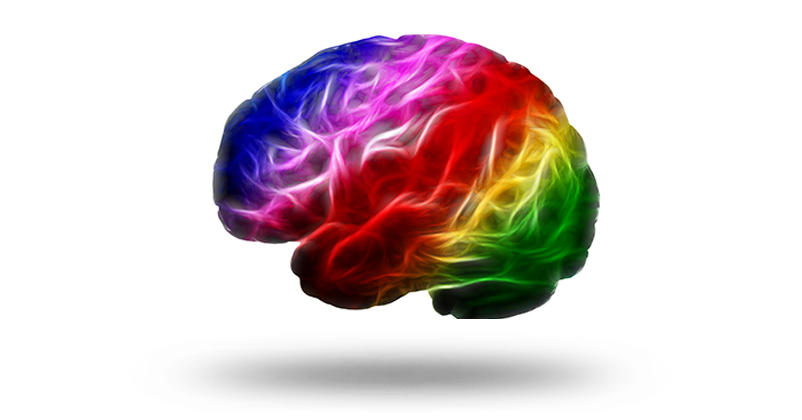
A recent discovery out of the University of Virginia School of Medicine will rewrite the textbooks for the way scientists and physicians look at how the immune system protects the body. Researchers have found something that centuries of medical and scientific tradition said didn’t exist: a direct physical link between the brain and the immune system.
A New Understanding of the Body’s Chief Defense Mechanism
A team of researchers at UVA’s Center for Brain Immunology and Glia (BIG) found—by accident—the “missing link” between the brain and immune system: a series of microscopic lymphatic vessels in the meninges, the tissue that surrounds and protects the brain inside the skull.1
The lymphatic system is a vast network of vessels that deliver nutrients to cells and clear out their waste. It’s also the cornerstone of our immune system, which protects our body from invaders.2 Previously scientists believed that it covered the rest of the body but stopped short of the brain and spinal cord; now we’ve seen that the system is consistently organized, from our toes all the way up to our brain.
And that’s going to fundamentally change how both research and medicine approach studying and (eventually) treating neurological diseases such as multiple sclerosis, autism, chronic fatigue syndrome, and Alzheimer’s.
To appreciate just how revolutionary this discovery is, it’s worth looking at what (we thought) we knew about the immune system before.
The Lymphatic System: The Centerpiece of Your Immunity
Your immune system is the first line of defense against pathogens (like a virus, bacterium, fungus, or other microbe), foreign bodies, and tumors. Its centerpiece, the lymphatic system, is a network of vessels that piggyback on your blood vessels throughout your body.3 In these vessels circulates a specialized fluid called lymph, which delivers nutrients to tissues, maintains the interstitial fluid balance between cells, and evacuates cellular wastes back to the bloodstream. This fluid also carries immune cells called lymphocytes, several types of white blood cells, which are constantly on the lookout for attackers, contamination, or anything that doesn’t seem right.
Stationed along the network are lymph nodes, 500 to 600 of them, many clustered in the groin, pelvis, chest, underarms, and in the neck—in fact, the “glands” under your jaw that swell up painfully when you’re sick are actually lymph nodes.4 These nodes filter the fluid as it flows, trapping pathogens such as bacteria, viruses, fungi, other foreign invaders, and tumor cells where immune cells (some stored in the nodes already) can easily attack and destroy them.
There are lymphoid (immune system) tissues in your gastrointestinal tract, too. It comes into contact with a huge range of substances every day, from the good (nutritious foods and beneficial bacteria) to the dangerous (microorganisms and other things that could make you sick), so it’s designed to handle volume. Your gut contains a vast number of immune cells—representing about 70% of your entire immune system—that enable it to simultaneously welcome what your body needs and reject invaders that could upset your body’s healthy balance.
The Brain Has Always Been a Special Case
Centuries of scientific learning have always held that the brain is specially protected by a gatekeeping system that communicates with all other bodily systems only in very specific and limited ways. Normally, this blood-brain barrier—the name given to tightly packed specialized cells that protect the brain and spinal cord from any substances in the blood that may be harmful to brain cells, from pathogens to hormones—is selective, allowing only a few types of molecules and gases to cross from the bloodstream to the brain and back.5 The efficiency of the blood-brain barrier is why medications in the bloodstream can’t reach the brain to treat diseases.6
Scientists also thought that the brain had its own special ecosystem to carry away cellular wastes, the function that the lymphatic system handles elsewhere in the body. They knew that the brain could communicate with the immune system via nerve bundles that connected to lymphoid tissues (places in the body where lymphocytes develop, such as the spleen), and that some chemicals could convey messages from the brain to the immune system along certain nerve pathways, but they believed that there was no direct connection between the central nervous system and the immune system.
Believing in the brain’s isolation has made it that much harder for researchers to find ways to fight immune-related neurological diseases like Alzheimer’s, where proteins build up and kill brain cells.
New Ways to Answer Important Disease Questions
The lymphatic system’s complex delivery and drainage network has been mapped and studied in nearly every part of the body, but not—until now—in the brain.
The discovery of microscopic lymphatic vessels in the protective tissue covering the brain is a quantum leap in our understanding of the body’s chief waste disposal and defense mechanism. If the brain is organized like other body tissues, where the lymphatic system is responsible for delivering immune cells and washing away waste products, it may have profound implications for the study and treatment of a wide range of brain disorders, especially for neurological diseases with an immune component, including multiple sclerosis, autism, chronic fatigue syndrome, and Alzheimer’s.
Dr. Jonathan Kipnis, senior author of the study and director of the university’s BIG program, told the Washington Post, “no one knew there were those ‘pipes’ in there that could take out the brain’s trash.”3
In announcing the discovery, Kipnis said, “This changes entirely the way we perceive the neuro-immune interaction. We always perceived it before as something esoteric that can’t be studied. But now we can ask mechanistic questions.
"In Alzheimer’s, there are accumulations of big protein chunks in the brain,” Kipnis explained. “We think they may be accumulating in the brain because they’re not being efficiently removed by these vessels."1
Although practical applications and new treatments are still in the future, this is an exciting new research avenue for scientists working on some of the most vexing diseases of our time.
Everything Is Connected
The discovery of immune system vessels in the brain illustrates the elegant organization of the human body—an interrelated system designed to actively seek healthy balance from head to toe.7
And when you know that your immune system is connected from your brain on down, keeping everything coming and going in just the right ways, it’s easy to see why maintaining that natural balance is important. Supporting your immune system—getting enough sleep, eating the right nutrients, reducing stress, exercising regularly—not only helps you avoid getting sick, it helps keep your mind healthy, too. It’s the centerpiece of your body’s wellness every day, not just during cold & flu season: Take care of it so it can take care of you.
Notes
- University of Virginia Health System, “Missing link found between brain, immune system—with profound disease implications,” Jun. 1, 2015.
- U.S. Dept. of Health and Human Services, National Institutes of Health, “Understanding the Immune System: How It Works,” NIH Pub. 03-5423, Sept. 2003.
- Amy Ellis Nutt, “Scientists find the brain’s missing ‘pipes,’” WashingtonPost.com, Aug. 17, 2015.
- Wikipedia, “Lymphatic System,” accessed May 20, 2016.
- Eric H. Chudler, “The Blood-Brain Barrier (‘Keep Out’),” University of Washington Faculty Webserver, accessed Jun. 7, 2016.
- BrainFacts.org, “The Blood-Brain Barrier,” Society for Neuroscience, Jul. 2, 2014.
- Source Naturals® SystemiCare® is our model for optimal health, which helps you support your body’s natural healthy balance.









